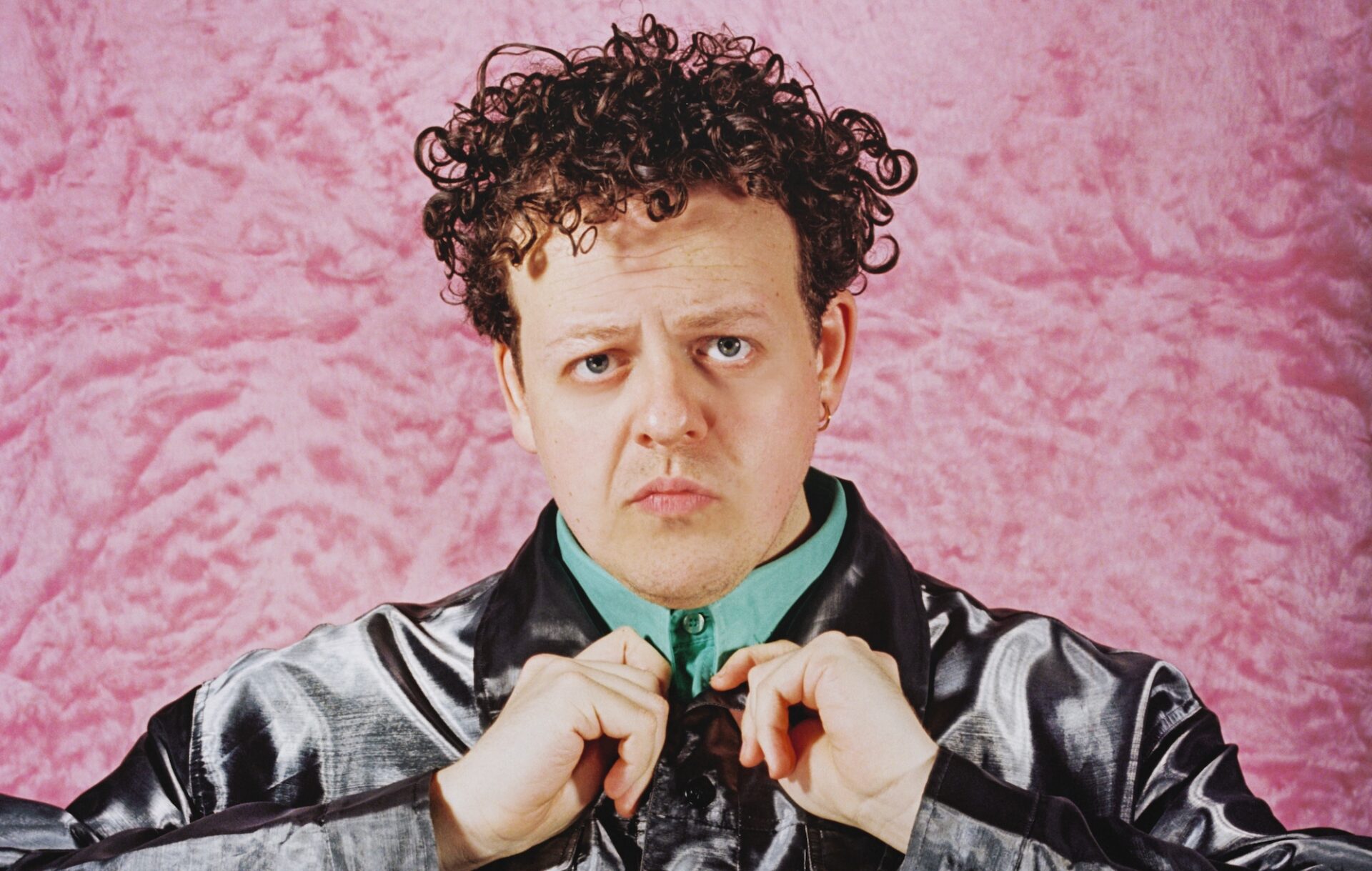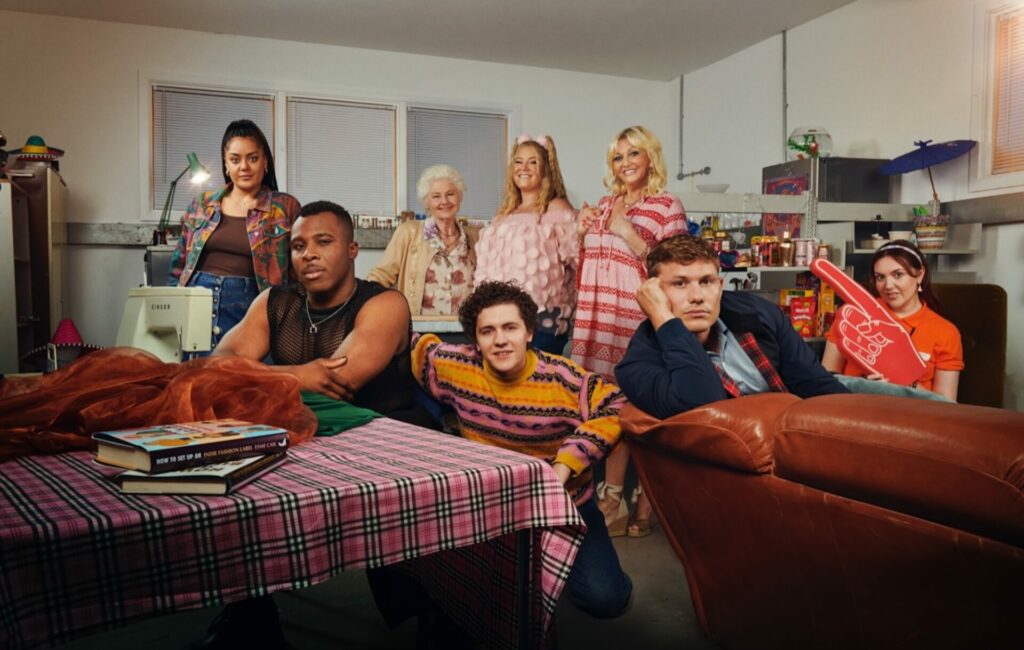‘Big Boys’ creator Jack Rooke: ‘A lot of comedy writers talk to me through gritted teeth’
As the beloved BAFTA-winning sitcom’s emotional third and final season airs on Channel 4, Rooke discusses mixing high and low culture, his next projects and being darkly funny about grief

The story that ends with the new and final season of Big Boys began nearly a decade ago at the Edinburgh Fringe. There, Jack Rooke debuted his celebrated shows Good Grief and Happy Hour over a number of years, which tackled the grief of losing his father aged 15 and his coming out as gay. In 2020, he released the memoir Cheer the Fuck Up, about the loss of a close friend to suicide.
Conversations around these topics also form the core of Big Boys, the important and consistently hilarious Channel 4 comedy loosely based on Rooke’s life that launched in 2022 and concludes this month. The show, which won 31-year-old Rooke a BAFTA for Comedy Writer, is narrated by the creator himself. It sees Dylan Llewellyn (Derry Girls) star as Jack, alongside straight best friend Danny (Jon Pointing), one of many tropes flipped on their head here. The pair fumble their way charmingly through the knotty realities of early adulthood, Jack’s grief and Danny’s mental health struggles, with a filthy gag or niche 2010s reference always on hand to bring levity to the show’s many emotionally heavy moments.
At the end of the show’s second season, the arrival of a new baby in the family served as a turning point for Jack’s grief, where, as Rooke’s narration said, “the joy of loving someone new felt bigger than the pain of missing someone gone”.
“I did think that maybe that was it,” Rooke tells Rolling Stone UK in a London hotel ahead of the show’s third and final season airing. “The end of season two ties up that grief story really well. The show is about grief, the people that you choose to get you through it, and the people you gain after a loss. You build family when you lose family. Season two was a presentation of that, seeing life and death next to each other.”
With the show’s main narrative thread so far finding a natural endpoint, the show’s final season treats its staple topics – Jack’s grief and sexuality – with a lighter touch. It allows in more of the humour that anyone in the unfortunate dead parent club knows is as much of a cornerstone of conversations around grief as sadness is.
“You’re not the only one with a dead dad, Jack – I just don’t go on about it every day!” his cousin Shannon (Harriet Webb) quips at him in the first episode. “My best friend lost her mum when she was nine, and we just constantly take the piss out of each other for having dead parents,” Rooke laughs. “We walked around Sainsbury’s one Halloween and they had all these ghost toys. I just kept picking them up and saying, ‘Oh, your mum’s here!’”
Of the unspoken bond that this specific type of grief provides, Rooke adds: “Loads of my closest friends have lost a parent, and that’s definitely a part of why I’ve gravitated towards them. It’s about having people around you who understand that mortality is a thing and we’re not all really indestructible. Sometimes when you talk to someone in their thirties with two parents still, it’s like, ‘Oh, you’re such a fucking brat.’ You see how they react to something so tiny [and say], ‘Come on, get a little bit of resilience about you.’” He smirks, “I was probably a bit of a dickhead.”
While season three covers Jack’s desperation to have sex (“How do I have a contactless debit card and I still haven’t been bummed?!”) and regrettable poetry phase (“I do consider myself a recovering spoken word artist in many ways,” Rooke laughs), it also dives deeper than before into conversations and storylines around mental health, tackled with a perfectly judged balance of care, seriousness and humour by Rooke.
“I wrote [Big Boys] from a place of real frustration at how the mental health conversation was culturally depicted,” he says, adding that it is “not actually a show for people who are struggling. It’s a show for the people who are loving somebody struggling.” In the final season, these topics are tackled more head-on than before, and with a clarity and transparency that other shows only manage to gesture towards. “I hope we’ve achieved something that was not there before it,” Rooke says.

Across three seasons, Big Boys has perfected its formula of marrying high and low culture with equal reverence. The show’s references – Danny recalling throwing a bottle of piss at Lady Sovereign at Reading Festival; Jack’s disgust at Gamu getting voted out on The X Factor – hit such a specific sweet spot for millennial viewers and lovers of ‘trash’ culture, serving as something close to the beloved Love of Huns Instagram account made flesh. It marks Rooke out as one of the savviest writers of his generation.
“How do you mix high art and low art, disregarding whatever those signs of quality are?” he posits. “I want Big Boys to be full of pop culture moments that are really accessible, and some people might call trashy, but doing it with the best cameras, being shot incredibly well.” It’s summed up best by a tiny moment in season three, when a gorgeous and tender Perfume Genius song is abruptly cut off by the ping of a Grindr notification on Jack’s phone.
In conversation with Rooke, it’s clear that he lives and breathes this marriage outside of the show too. Across our hour together, we discuss his “regrettable” Hadouken! phase, the fate of contestants from the new series of The Traitors, and his karaoke choice – Girls Aloud’s ‘Love Machine’ in the style of Arctic Monkeys, based on their famous Live Lounge cover from 2006. His friend, the Sheffield-born singer Self Esteem, was seething at Rooke “taking the piss” out of the city’s accent on the mic; he insists it was purely a “cultural homage”.
“I want ‘Big Boys’ to be full of pop culture moments that are really accessible, and some people might call trashy, but doing it with the best cameras, being shot incredibly well.”
Despite its pitch-perfect script and keen audience, struggles still remain for British comedies like Big Boys to get greenlit, let alone renewed for subsequent series’. By way of an example, Rooke explains that one of the final scenes of the new season had to be written in Instagram Stories format so it could be filmed on an iPhone, with nothing left in the budget for a film crew. It also meant Rooke’s initial idea of a one-hour finale special to end the show was shown the door by the network.
The writer says: “There are a lot of screenwriters that I talk to who are a little bit pass-agg to me when we talk about Big Boys. They’re like, ‘Well, of course it’s done well, the characters are really sweet and warm to each other’. And I’m like, ‘There’s loads of bitchy jokes in there, thank you very much!’ I think people like to be a bit bitter about something that’s got sweetness or love at the heart of it, especially comedy writers, because scripted comedy is in such a difficult climate right now where it’s so hard to get something made. A lot of comedy writers talk to me through gritted teeth.”
Despite this, the self-effacing Rooke says he doesn’t consider himself a strong writer, and the happiest future he sees for himself is as a producer and collaborator. “I think I’m a good showrunner, a good producer, and I can see the world of stuff in character, but there are way better writers out there.” Writing scripts, he says, is a “really lonely and really depressing” process. “It’s only when everybody else comes on board that I really love doing it.”
Regardless, two future projects have come to the forefront of Rooke’s mind since Big Boys wrapped. One is similarly autobiographical, which he plans on “taking my long, sweet time with,” while the other is “not about me whatsoever”.
“I’ve loved Big Boys, but it’s quite a self-indulgent affair, right?” he smiles. “I’m definitely excited to do some fully fictional stuff where I’m not drawing from any of my own experiences.” It’s an understandable desire from a bright new name in British TV comedy, one that has turned his upbringing and experiences into consistently challenging, important and side-splittingly funny art over and over again. “At this point,” he laughs, “I may be a bit sick of myself.”
All three series of ‘Big Boys’ are available to stream on Channel 4 and via Hulu in the US now.
